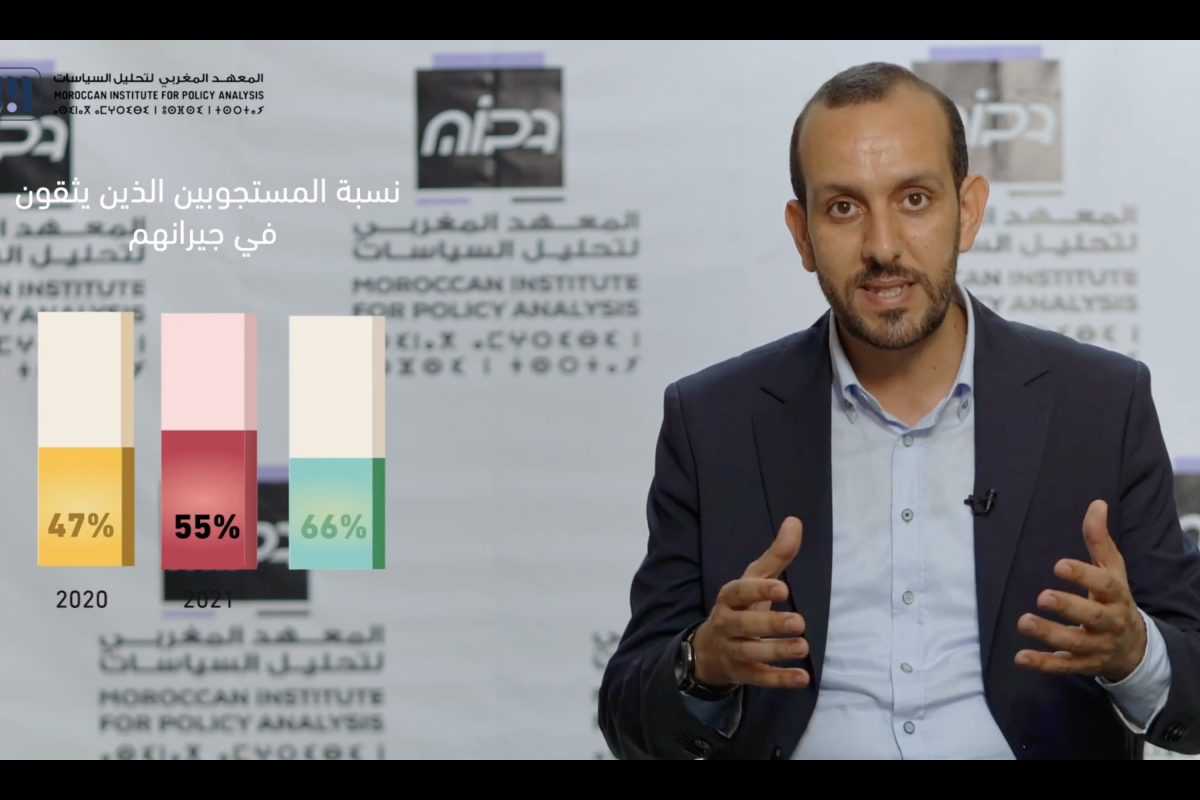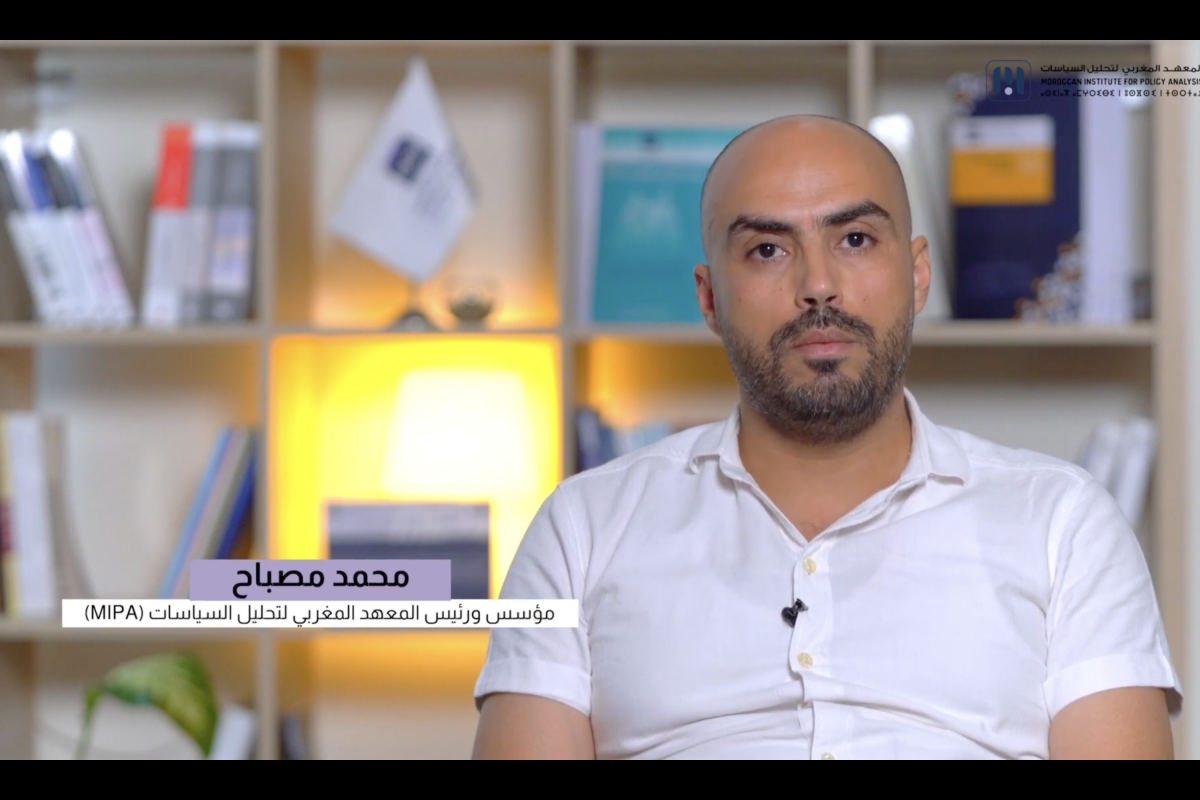” The health crisis that swept the world in 2020 affected people’s lives in all aspects, including the relationship of citizens to their social and political institutions. While most studies have focused on the economic and health effects of the Covid-19 crisis, little attention has been granted to its social and political effects and its impact on the citizen’s relationship with other citizens and with the state. “
Within this context, the Moroccan Institute for Policy Analysis believes in the importance of studying and understanding citizens’ attitudes and perceptions concerning trust in various institutions. Understanding the relationship between citizens and their political institutions helps to produce policies that enhance the level of citizens’ trust towards their institutions and, as a result, contribute to strengthening institutions.
This brief report attempts to shed light on the various aspects of trust in the education and health care sectors in Morocco in the years 2020-2021. It represents the results of a research effort that took nearly two years in a row, where the research team worked to provide a systematic analysis of social and political trust and trust in the education and health sectors during the Covid-19 period, through a mixture of quantitative and qualitative research methods.
According to the results of the trust index 2020, education comes on the list of priorities that Moroccans demanded from the government, followed by improving health services. The education, health, employment and anti-corruption sectors are among the four issues of highest priority in the eyes of Moroccan citizens. Taking these results into consideration, we decided to dedicate the trust index 2021 to study trust in the education and health sectors. However, with the beginning of the study, the world and Morocco entered the era of Covid 19, which imposed a huge challenge on these two main sectors. This unprecedented crisis has changed the order of the two sectors on the ladder of priorities, as the health sector jumped to the first place, followed by the education sector, and this confirms that Moroccan citizens have great expectations for improving the services of the two sectors in Morocco.
Most of the citizens that were interviewed stated their disappointment in the education sector in Morocco, and their lack of trust in the Moroccan educational system. The public school has received a great share of criticism, but according to educational frameworks it is a matter of dissatisfaction and not a complete loss of trust. This was inferred by the fact that citizens are still attending Moroccan schools, and there is still hope for improving the education sector in Morocco if the constraints are overcome. However, the paradox lies in the fact that even those who trust the public school are not satisfied with its level, performance, resources and current image. It seems that the Covid-19 crisis has weakened the trust in education, as some educational workers and citizens see that the online educational system was imposed by surprise given the context, while education used to follow traditional techniques previously, and therefore neither the teachers nor the students were well informed or trained on facing the technical issues.
Most of the citizens that were interviewed expressed their dissatisfaction and distrust in the health system in Morocco as well. They also considered that this sector is facing major problems that start with the lack of human resources and infrastructure. Workers within the health system as well as the respondents made several suggestions to improve the health sector situation in the country.
You will find more in the report prepared by the Institute’s team.
MIPA Institute
MIPA is a non-profit independent research institution based in Rabat, Morocco. Founded by a group of transdisciplinary researchers, MIPA’s mission is to produce systematic and in-depth analysis of relevant policy issues that lead to new and innovative ideas for solving some of the most pressing issues relating to democracy.

